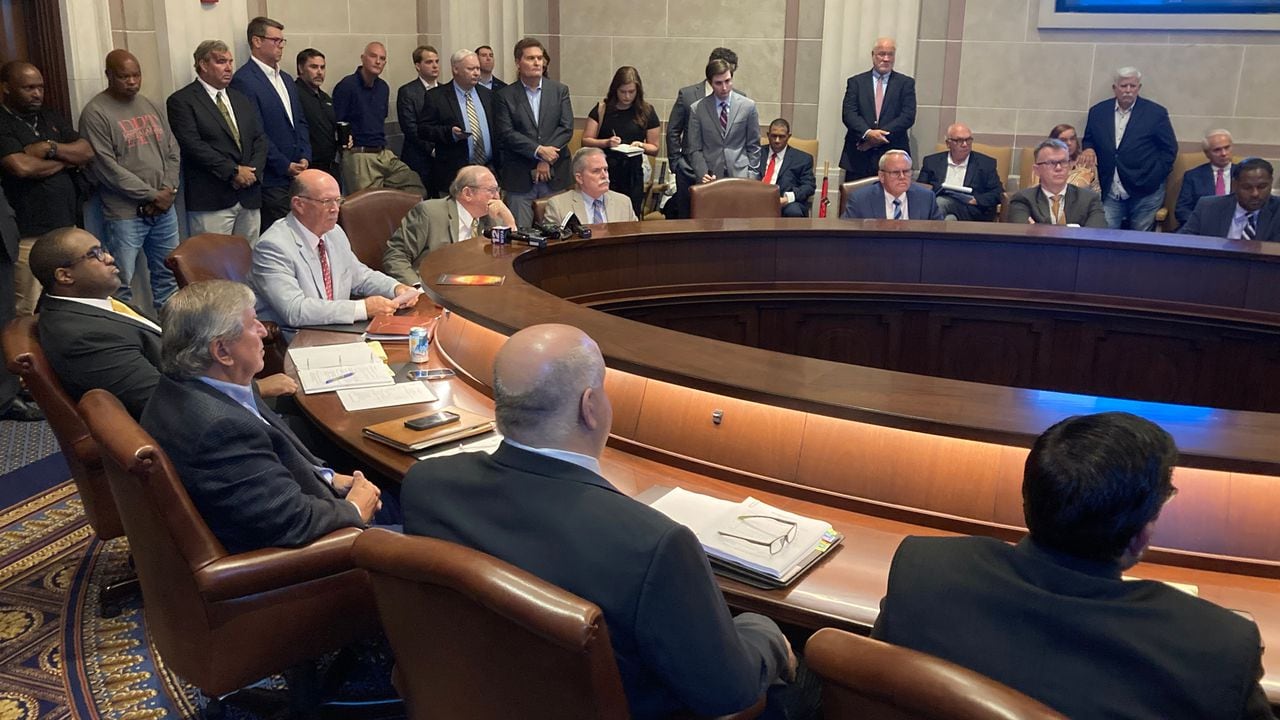Alabama tries for 3rd time to award medical marijuana licenses
Alabama can move closer to making medical marijuana products available on Friday, when the Alabama Medical Cannabis Commission tries for a third time to award business licenses.
The AMCC is scheduled to select cultivators, processors, transporters, dispensaries, and testing labs at its meeting at 1 p.m. at the State House.
Companies are competing for a limited number of licenses allowed under the law passed by the Legislature in 2021. The license applicants made public presentations to the AMCC this week, making their cases for why they should be picked.
The AMCC awarded licenses in June and again in August but rescinded those decisions both times. More than 25 companies that applied for licenses have filed lawsuits.
A mediation agreement approved by Montgomery County Circuit Judge James Anderson in a consolidated lawsuit has helped clear the way for the AMCC to award licenses again. If the AMCC’s timeline holds and is not blocked by more litigation, companies should be able to begin their work early next year, with products expected to be available later in 2024.
The main point in the mediation agreement is that the AMCC will not consider scores assigned by third-party evaluators to rank the applicants. The scores, compiled by graders recruited by the University of South Alabama, have been one of the most controversial aspects of the licensing process.
The commissioners’ licensing decisions in June and August, now rescinded, closely tracked the scores, with the highest scoring applicants being awarded licenses in almost all cases.
Overall, 90 companies applied for licenses. Thirty-eight of the 90 applied for integrated licenses, which would allow them to cultivate, process, transport, and dispense medical cannabis.
The AMCC is scheduled to hear presentations from the integrated license applicants next week and award licenses in that category on Dec. 12.
The competition for integrated licenses has produced most of the litigation and controversy so far.
The AMCC draws a distinction between awarding licenses and issuing licenses. Licenses awarded Friday are scheduled to be issued Dec. 29 after the payment of licensing fees and after the AMCC completes a due diligence process.
Alabama is one of 38 states to legalize medical marijuana, according to the National Conference of State Legislatures. Alabama’s industry will be fully intrastate. The Legislature created the AMCC to oversee the regulation of the industry.
Doctors who receive training in medical cannabis will be able to recommend medical marijuana products for more than a dozen conditions — autism spectrum disorder; cancer-related pain, weight loss, and vomiting; Crohn’s Disease; depression; epilepsy or conditions causing seizures; HIV/AIDS-related nausea or weight loss; panic disorder; Parkinson’s Disease; persistent nausea; post-traumatic stress disorder (PTSD); sickle cell anemia; spasticity associated with multiple sclerosis or spinal cord injury; Tourette’s Syndrome; a terminal illness; and conditions causing chronic or intractable pain.
